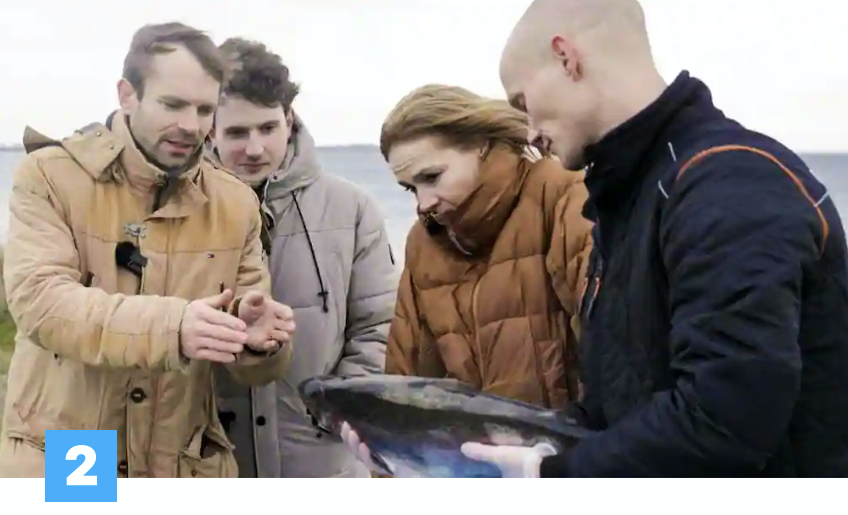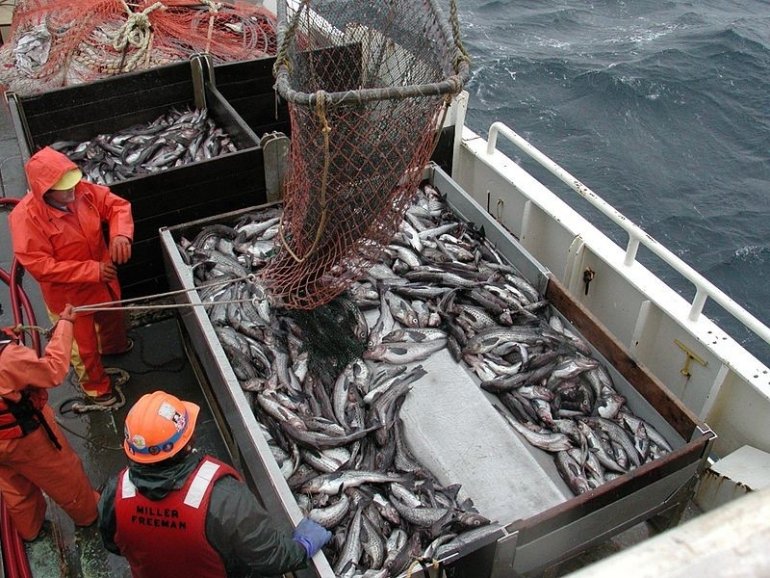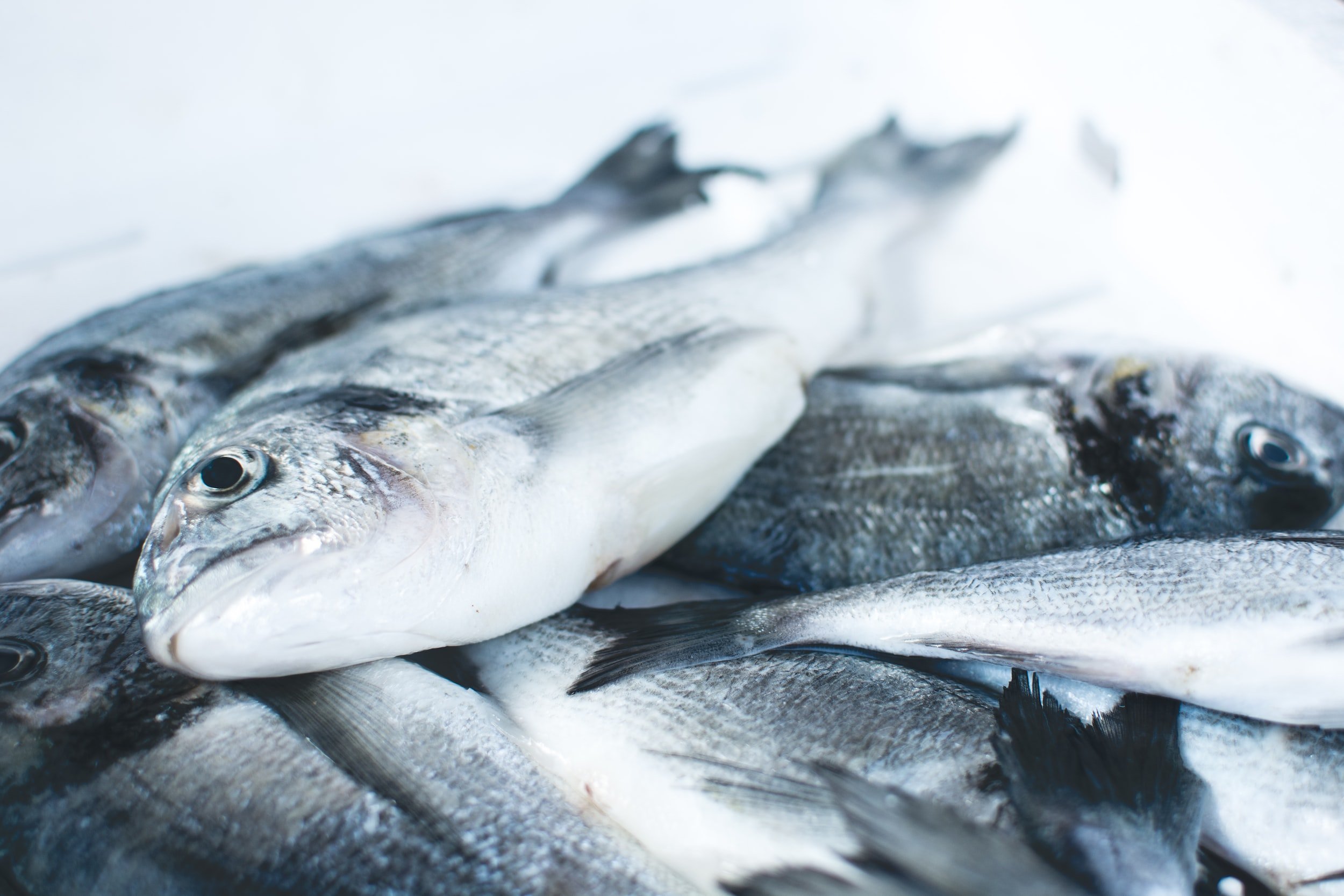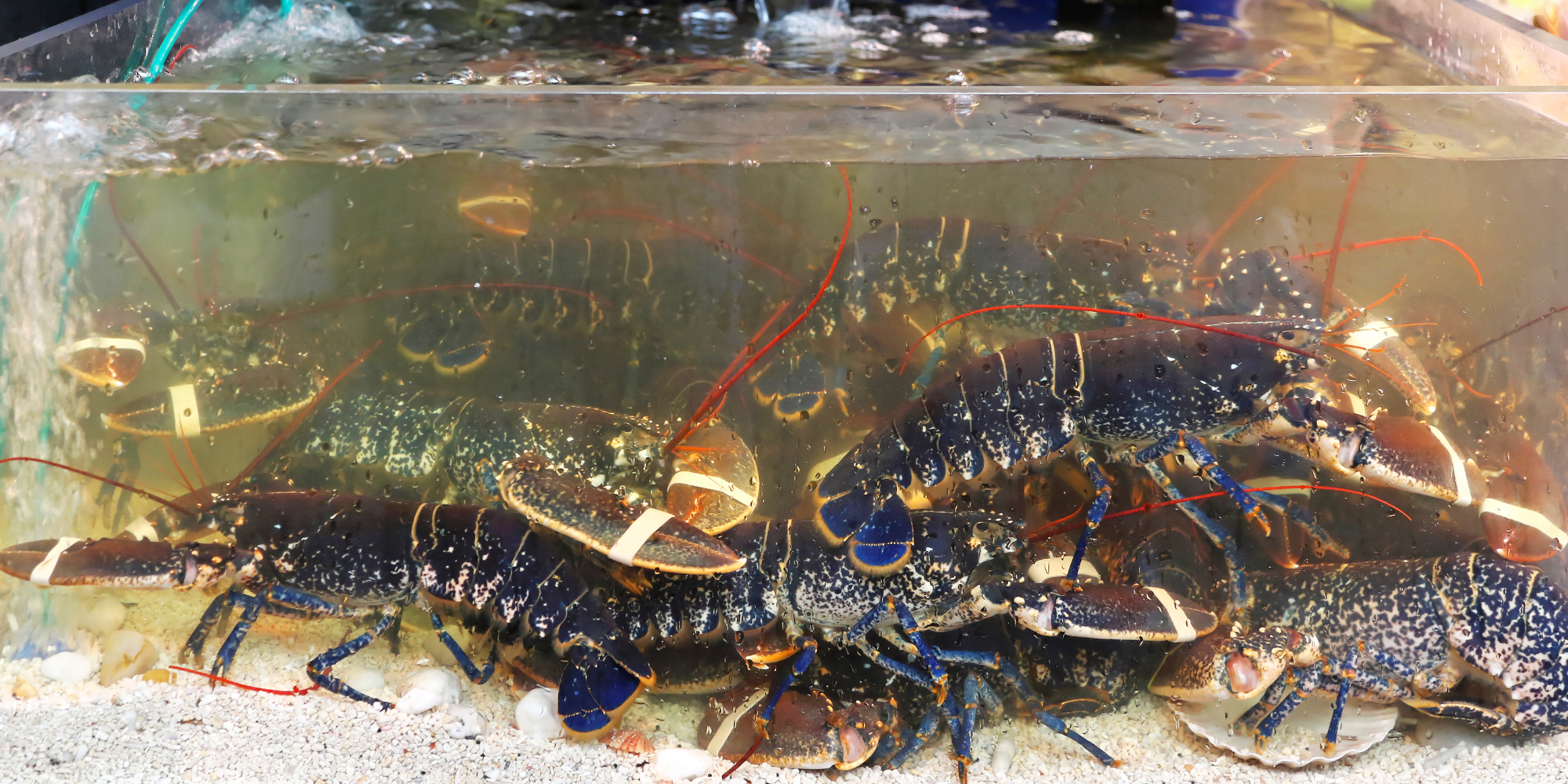
Fish
What everyone should know about fishing and aquaculture
Why should we talk about fish?
Billions of fish and other sea creatures are killed every year to be eaten. Although these animals have a nervous system similar to our own and can feel pain, they are usually slaughtered without consideration for whether they can actually feel anything. As a result, fish suffer terribly in nets, on the ends of hooks, and on the decks of fishing boats, where they slowly suffocate or are cut open while still conscious.
Human appetite for fish and shellfish also has a significant environmental cost, as fishing vessels destroy the world's oceans, leaving them empty, lifeless, and on the brink of ecological collapse.
Fish have feelings
Just because they look different from us and have scales instead of skin and gills instead of lungs, fish are often misunderstood. But we have many things in common with these underwater creatures—for example, they often live in complex social groups, have distinct personalities, are capable of learning and remembering new information, develop deep personal relationships, and experience pain and fear when injured. They show affection by rubbing against each other and communicate using a range of low-frequency sounds.
Leading scientists agree that fish feel pain. As biologist Victoria Braithwaite writes, "there is as much evidence that fish feel pain and suffer as there is for birds and mammals"—a conclusion that is hardly surprising to anyone who has seen a fish struggling for its life when pulled out of the water.
A terrible death
The fishermen throw the fish they have caught into ice bins on deck, where they slowly suffocate, freeze, or are crushed to death—a horribly cruel and prolonged way to die for these cold-blooded animals. Researchers estimate that it can take up to 15 minutes before they lose consciousness. Other fish have their gills cut or their throats and stomachs cut open while they are still alive on decks flooded with blood.
Fish pulled up from deep water often suffer from rapid decompression, which can burst their swim bladders, pop their eyes, or force their internal organs out through their mouths. And in catch-and-release fishing, up to 43% of fish do not survive the trauma of being impaled on a hook and hoisted out of their natural environment.
More fish in the sea?
As humans pull billions of fish out of the sea, fish populations are declining dramatically and many species are close to extinction. Commercial fishing vessels also cause unimaginable damage to the marine environment. Massive trawlers with nets the size of football fields destroy corals and sea plants on the seabed and engulf all life in their path, including sea urchins, dolphins, crabs, turtles, and seals. In longline fishing, ships roll out lines up to 75 miles long, filled with deadly hooks. Giant drift nets are invisible to most fish and hang in the water like a "wall of death," trapping any animals that swim into them.
Factory farming
Many of the fish consumed in Denmark come from fish farms, where, like all factory-farmed animals, they are subjected to intense confinement, dirty conditions, mistreatment, and high levels of disease and parasites such as sea lice. The fish are kept in underwater cages and never have the opportunity to swim freely or exercise their natural instincts, such as the salmon's strong urge to migrate upstream every year. And they can be killed by being beaten with clubs (called a priest) or having their gills cut without anesthesia. However, this is an inefficient way to kill many fish, and it happens when the electric bath does not reach all the confined fish.
Fish farmers add chemicals and antibiotics to fish feed in an attempt to counteract the harmful effects of overcrowding and use drugs that unnaturally accelerate growth. These substances harm the fish themselves, the people who eat their meat, and the local environment as the water becomes polluted. Fish farming is also unsustainable: for example, to raise one salmon on a farm, three times as much weight of wild fish is needed as feed.
Fishing is not a harmless hobby
Recreational fishing is often portrayed as a peaceful leisure activity – but for the fish involved, it is anything but peaceful. When a fish bites the hook, the sharp metal hook often pierces its lips, throat, and internal organs. This causes pain, stress, and panic. Research shows that fish have a nervous system and a brain that enable them to feel pain – and that they respond physiologically to stress, just like mammals do.
Many fish are thrown back into the water, but that does not necessarily mean they survive. Damage from the hook, loss of protective mucus, and handling out of the water can lead to fatal infections, internal bleeding, or suffocation. The so-called "catch and release" is done with animal welfare in mind, but for the fish it is a violent and often deadly experience.
Fish are sentient beings who also have the right to be free from unnecessary pain and death – even when it comes to human entertainment.
Crustaceans
Lobsters and crabs used for food are often subjected to one of the most cruel fates any animal can suffer—being boiled alive. Being thrown into a pot of boiling water while still conscious causes these sentient animals as much pain as one would expect, and they show it by frantically clawing at the sides of the pot for up to a minute before dying in agony.
Some chefs also cut them up without painkillers. And before they are killed, the naturally solitary lobsters are stacked on top of each other in small basins. Their claws are tied together to prevent them from tearing each other apart while they are driven mad by the intense, unnatural confinement.
Dangerous fish?
Fish often live in water that is so dirty that you would never drink it. Their bodies absorb a toxic mixture of bacteria, pollutants, and heavy metals—which are then transferred to anyone who eats them. Fish, shellfish, and tuna can contain high levels of mercury due to industrial pollution, sometimes causing mercury poisoning in humans: symptoms include hair loss, cognitive impairment, and an increased risk of heart disease.
With regard to the health benefits of essential omega-3 fatty acids, it is entirely possible to obtain plenty of these from plant sources. Walnuts, flax seeds, soybeans, and cauliflower all contain these important nutrients without a toxic dose of chemicals and cruelty.
What you can do
It's quite simple—you can eliminate seafood from your diet. By doing so, you will save the lives of many animals and reduce the profits of a global industry that harms millions of sentient beings every day and is responsible for the destruction of our environment.
While you're at it, why not try a plant-based diet and distance yourself from cruelty altogether? Sign up for our 22-day vegan challenge at VeganerUdfordringen.dk.
Facts about fish
90% of large fish stocks have been decimated over the last 50 years.
Fishing is the biggest killer of animals in the world. It is estimated that more than 1 trillion fish die every year because of humans.
Although they have no vocal cords, fish make low-pitched sounds to communicate with each other by rattling their teeth and bones, vibrating their muscles, and using other parts of their bodies.
Just as humans can be right- or left-handed, lobsters are also right- or left-handed.
It is estimated that 300,000 whales, dolphins, and porpoises die each year as "bycatch" when they become entangled in fishing nets. Many birds, seals, and turtles also die from injuries caused by fishing nets and fishing gear.




